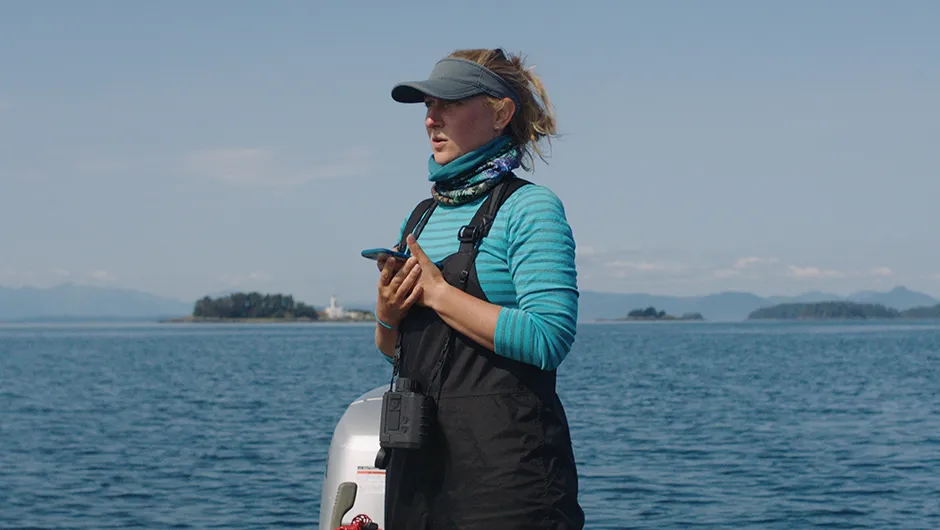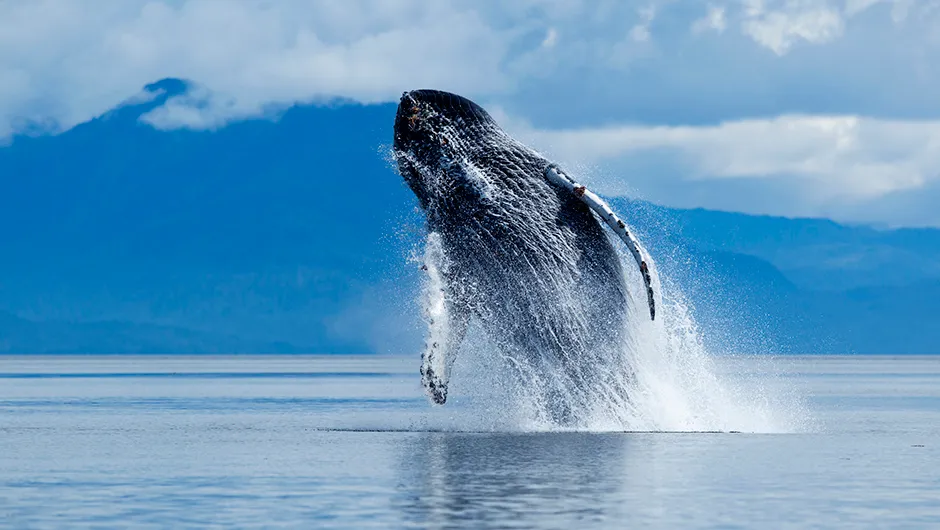There is little known about humpback whale song. This documentary film on Apple TV+ follows two research scientists as they travel to the opposite sides of the world in pursuit of answering the mysteries of why humpback whales sing, how that song travels the world and how their songs influence whale culture.
The highs and lows of carrying out exciting research and fieldwork are set against a spectacular backdrop of beautiful scenery, whale sightings and eerie whale sounds, giving an insight into what fieldwork is like and how important it is to learn more about these incredible creatures.
When is Fathom on TV?
Fathom airs on Friday 25 June 2021 on Apple TV+.
Watch the trailer for Fathom:
Please note that external videos may contain ads:
What is Fathom about?
If you have ever dreamed of communicating with animals, then this documentary by Apple TV+ gives an insight into two scientists’ individual quests into the deep with the aim of understanding how and why humpback whales communicate.
Set on opposite sides of the globe, Fathom shows the challenges and emotions involved in fieldwork studying the humpback whales’ complex ‘song’. If you thought lockdown felt lonely then the researchers’ isolation from ‘normal’ life with long days tracking sounds produced by humpbacks, not always hearing anything, can put things in perspective.

Catching the occasional glimpse of a whale or hearing a whale song gives a sense of excitement but the documentary can feel a little slow at times. If you need a sense of something greater whilst seeing the work that goes into asking and researching important wildlife questions, then Fathom is one to watch.
Who are Dr. Ellen Garland and Dr. Michelle Fournet?
Dr. Ellen Garland and Dr. Michelle Fournet are both scientists researching humpback whale songs and social communication. In the documentary, Garland researches humpback whale song and is a senior research fellow at St Andrews University. Fournet is a post-doctorate marine ecologist based at Cornell University, who uses bioacoustics to better understand ‘whups’, one of the sounds made by humpbacks.
Which species feature in Fathom?
The programme is focused on following the humpback whale.
Humpback whale (Megaptera novaeangliae)

The humpback whale is a type of baleen, or toothless, whale. Their upper body is black with differing amounts of white on the lower part. Humpbacks normally range from 12 to 16 meters in length and can be recognised by their long, narrow flippers which are scalloped on the forward-facing edge. They also have large knobs on the head, jaws, and body.
Humpbacks live throughout all the major oceans, travelling vast distances during the migration season, some of the largest of any mammal in the world. Their songs are some of the most complex in the animal kingdom, lasting for up to 35 minutes and repeated. Humpbacks are also acrobatic, frequently breaching which links to the origin of its Latin name - Megaptera novaeangliae, Megaptera meaning ‘big-winged’ and novaeangliae meaning ‘New England’ referring to the place where European whalers first came across them.
